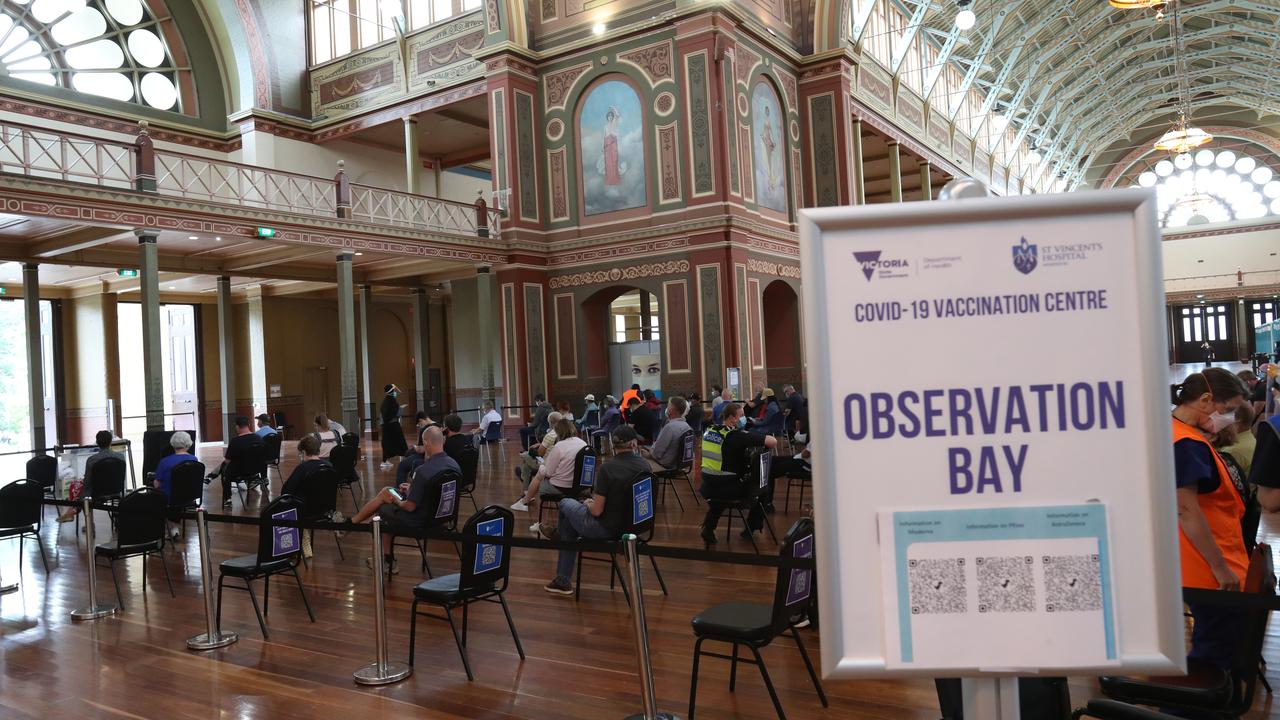Best booster shots revealed by Aussie experts as Omicron cases explode
Aussie experts have cleared up some of the biggest booster myths and misconceptions, and revealed the best booster options out there.
The advice surrounding booster shots has changed yet again for millions of Australians, so it’s no surprise that many of us are a bit confused.
This week, the waiting time for boosters was cut down to three months across a string of states as Omicron continues to wreak havoc across the nation.
So how do you know what’s best for you?
News.com.au spoke to two leading health experts to get the lowdown on boosters, including whether to mix and match, and how long to wait.
Do I even need a booster?
In a word, yes.
UK research has indicated that two AstraZeneca doses offers little to no protection against Omicron or mild illness four to six months after getting jabbed, while protection from a double dose of Pfizer drops to around 35 per cent.
However, UK research also suggests that two to four weeks after a booster, effectiveness ranged from around 65 to 75 per cent, dropping to 55 to 65 per cent at five to nine weeks, and 45 to 50 per cent from 10+ weeks after the booster.
OK, when should I get it?
The advice has changed since the Omicron variant emerged, with the interval for a booster shot now slashed to three months in Victoria, NSW, South Australia and the ACT, with others set to follow.
That decision was made due to soaring case numbers, which threaten to overwhelm the health system.
Catherine Bennett, the chair of epidemiology at Deakin University, told news.com.au the TGA had approved boosters to be taken anywhere from two to six months after a second Covid vaccine, which allowed people to “balance risks and benefits”.
Prof Bennett said the risk of infection was now the highest ever seen in Australia, with people in their 20s and 30s also falling ill.

She said while shortening the gap between jabs might have a “really small difference” in effectiveness, it had to be weighed up against the significant risk posed by skyrocketing infections here and now – and said with people set to return to work and school in droves within days, shortening the gap would help protect the wider community.
“Boosters are standing up really well in other countries that have narrowed the gap,” she added.
“Avoiding infection in the first place is still the best way to go.”
Nancy Baxter, clinical epidemiologist and head of Melbourne School of Population and Global Health, agreed and said boosters were more crucial than ever as authorities “urgently try to stop” the current, devastating outbreak.
With cases surging to record levels, she said moving the boosters forward was worth it due to the heightened risk of transmission, and that Aussies should book their booster as soon as they were eligible.
Should I mix and match my jabs?
Earlier in the pandemic, there was a lot of talk about the potential benefits of a “mix and match” approach – by having a different booster to your primary course.
Anyone who was double-vaxxed with AstraZeneca will now automatically receive an mRNA vaccine – either Moderna or Pfizer – as their booster, based on current recommendations.
“mRNA vaccines are definitely more effective in terms of transmission, which is really important right now to stop Omicron, and they do seem slightly more protective against serious disease, although AstraZeneca is also good for serious disease, mRNA vaccines are just a little bit better,” Prof Baxter said.
She added that now we have “ample supplies” of vaccines, it made sense to use mRNA jabs as boosters, but that it “probably doesn’t make a big difference” which mRNA booster you receive.
When it came to mixing and matching Pfizer and Moderna, Prof Baxter said both gave a “real bump in immunity” – and so ultimately, it wasn’t hugely important which one you opted for.
“I wouldn’t worry about which booster, as long as it’s an mRNA booster,” she said.
Will I need a booster every few months?
Many Aussies are concerned that the shortened booster interval means they could be lining up for boosters every few months in future.
But both Prof Baxter and Prof Bennett said even if that were the case, it was nothing to be concerned about.
“We don’t need to panic,” Prof Bennett said, adding that even if regular boosters came to pass, receiving a single booster dose would be much more straightforward – with less chance of reactions – than starting a multi-shot course from scratch.
“Some people might be anxious at the thought of doing it every few months, but the reality is vaccines are evolving in a big way as well.”

Prof Bennett said the future may bring universal vaccines which protect against all Covid strains, meaning we wouldn’t need so many shots targeting each specific strain.
Meanwhile, Prof Baxter said increased immunity from high rates of Omicron in the community coupled with vaccines and public health measures were creating “layers” of immunity which meant we may “get to the point where future waves are not this overwhelming disaster” we are now facing, meaning boosters would be less urgent.
Which booster should I get?
If you’ve been weighing up which shot to get, the answer from both Prof Baxter and Prof Bennett couldn’t be clearer – the best option is the first mRNA jab you can get, given the current crisis.
“Take what’s available – that’s strongly recommended,” Prof Baxter said.
“Obviously if you’ve had a reaction or problem with previous vaccines, talk to someone before you make your decision, like a pharmacist, GP or people at a vaccination centre, and they’ll be able to help you make the decision.
“But someone who had the usual side effects like a sore arm, headache or fatigue after the vaccination should take whatever appointment they can get first.
“The first appointment you can get is the best dose.”
Prof Bennett said if you received two Pfizer doses, it didn’t matter which booster you got as long as it was an mRNA jab.
“Moderna has a slight edge, although that’s going to be very marginal, and if you can’t get Moderna, then I still say you go for Pfizer because whatever you can get this week, means that in a week or two you will be a lot better protected,” she said.
“Don’t wait if you can avoid it.”






